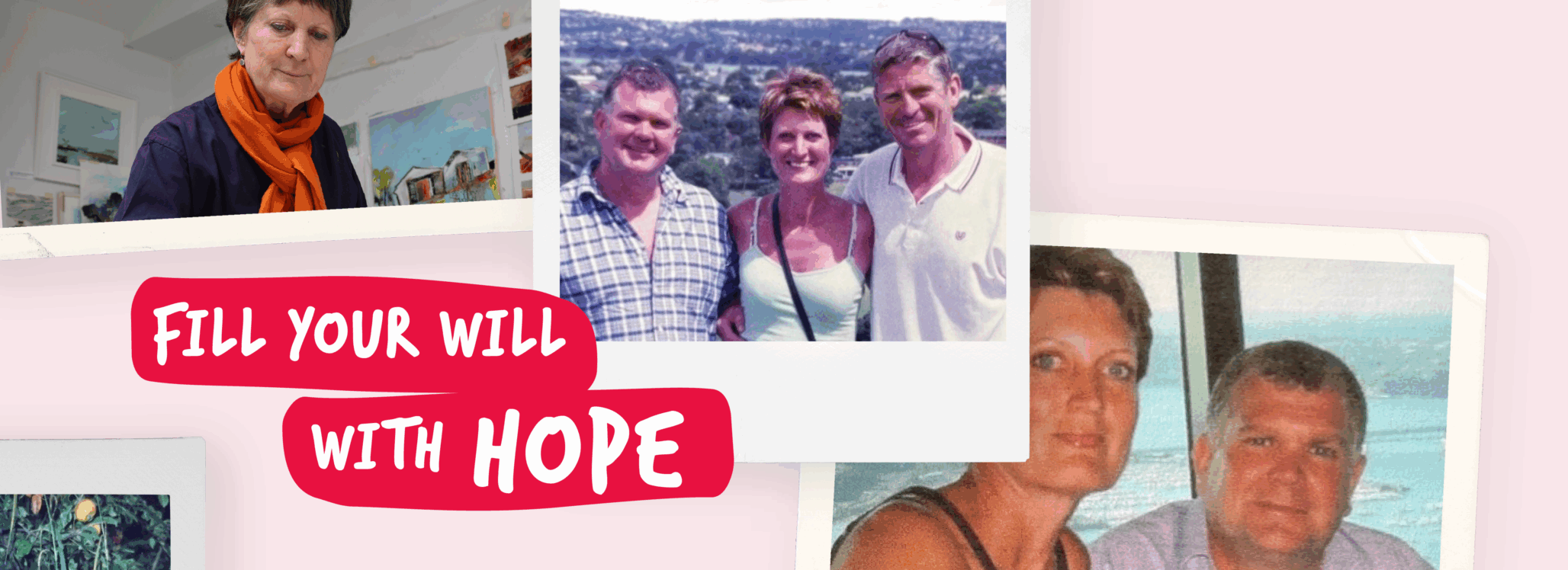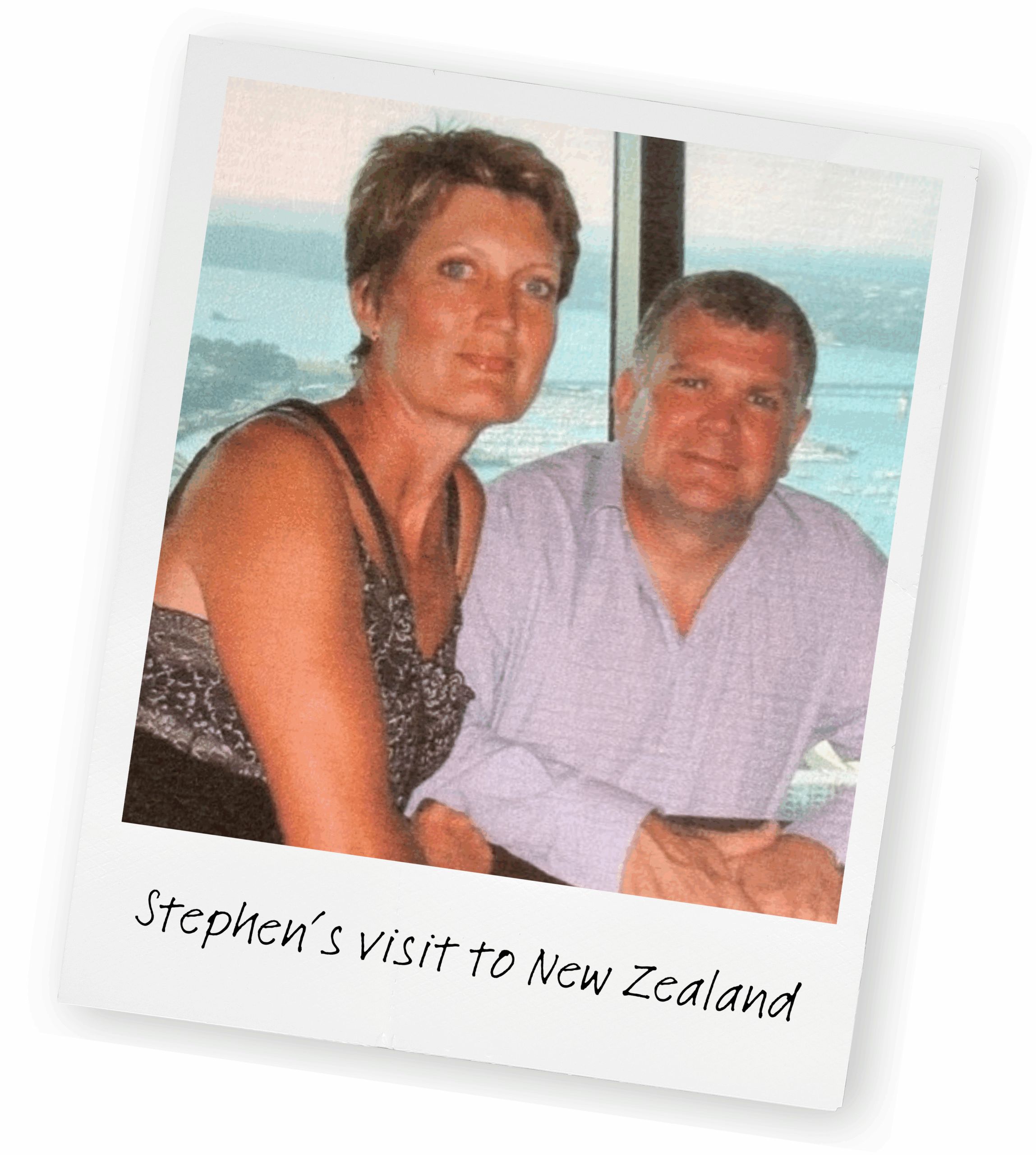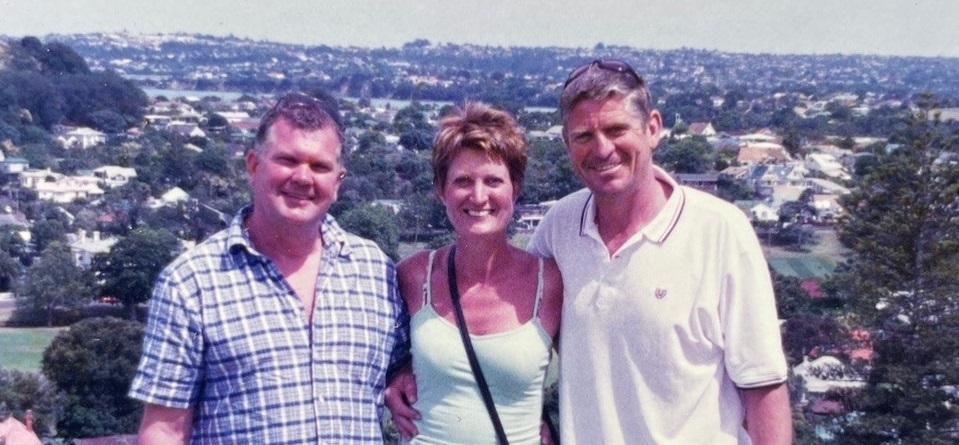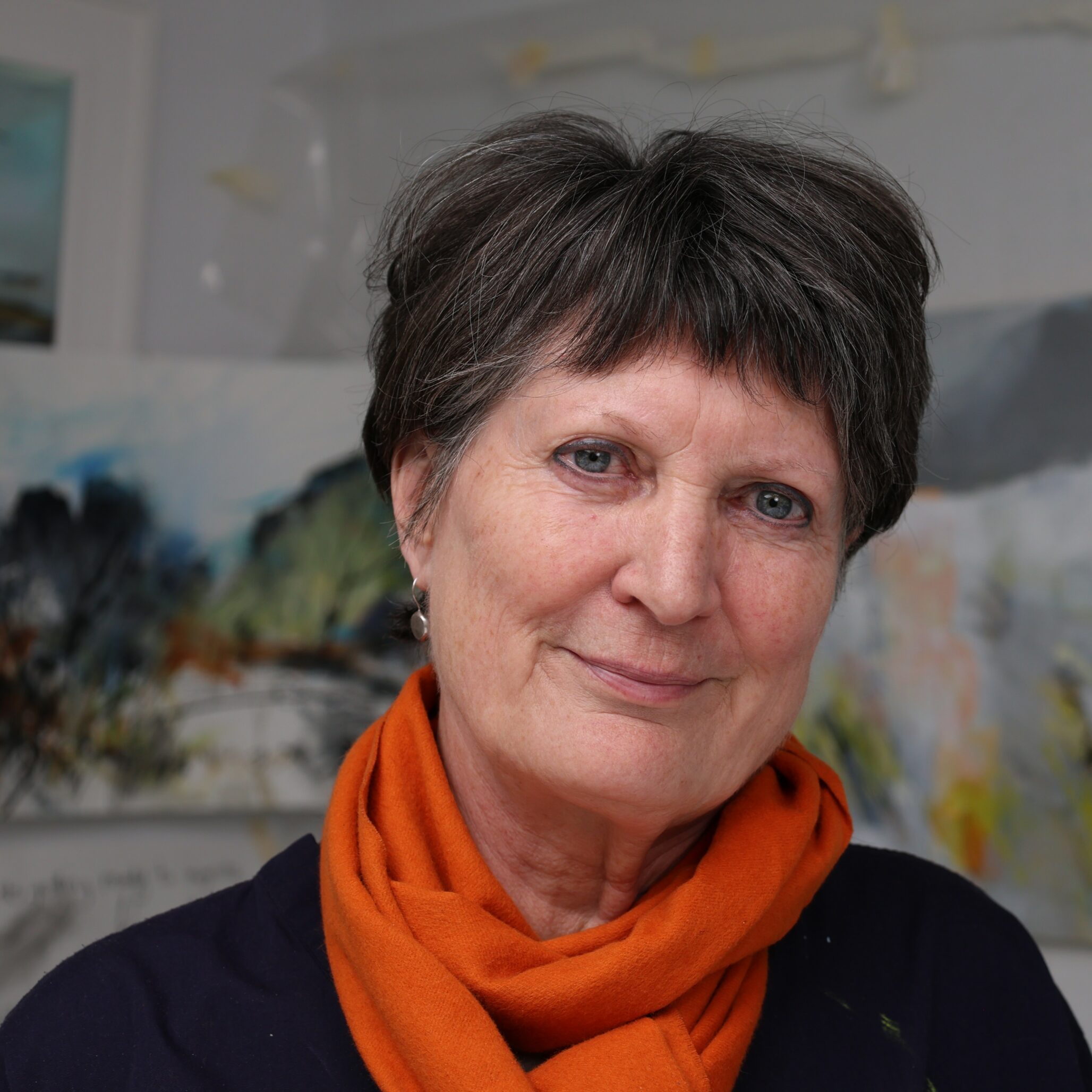Nicola’s filled her Will with hope

Gifts in Wills
Gifts in Wills are vital in helping to fund the research that’s accelerating us towards cures for all brain tumours. Right now, hope is growing thanks to gifts left in Wills many years ago. We now know more about brain tumours than ever before. But there is still so much more that needs to be done.
A gift in your Will could fund research that leads to a life-saving breakthrough in years to come.
Nicola, an artist from Oxfordshire, is offering hope to future generations by leaving a gift to The Brain Tumour Charity in her Will. Nicola made this powerful decision after tragically losing both her brother Stephen and husband David to the same brain tumour type, ten years apart.
Stephen’s diagnosis

In 2008, Nicola’s younger brother Stephen was diagnosed with a glioblastoma, an aggressive and fast-growing type of brain tumour. Nicola and her husband David were living in New Zealand at the time, but moved back home to Oxfordshire to support the family.
Stephen faced his diagnosis with courage and determination but, despite undergoing surgery and radiotherapy, he sadly passed away just a year after diagnosis, at the age of 46.
To see my younger brother die like that; it was just heartbreaking. Losing Stephen – my parents never really got over it.”
By leaving a gift to The Brain Tumour Charity, Nicola’s filling her Will with hope.
Nicola’s legacy will be the hope of faster diagnosis, the hope of more effective-yet-kinder treatments and, ultimately, the hope of a life free from the pain of brain tumours.
What will your legacy be?
A cruel twist of fate
In a cruel coincidence, ten years after losing Stephen, Nicola’s husband David received the same heart-breaking diagnosis.
“David had started to drop things and tripped on steps a few times. We put it down to him getting clumsy at first.
Then one day when we were due to go to some friends’ for dinner, he decided to make a loaf of bread to take – he was a great cook. I’ll never forget how he’d been mixing the dough, and suddenly dropped the bowl and it just went all over the floor. And I said, “What on earth are you doing?” He said, “I don’t know what’s happening to me, but I’ve got something wrong in my head. I’ve either got a brain tumour, I’ve got Parkinson’s, or I’ve had a stroke.”
He made an appointment to see the doctor in a couple of days, and we went out to dinner as planned. But during the meal he suddenly couldn’t stand and looked as though he was drunk. It was a really awful thing to watch.
We ended up going to the emergency department at the John Radcliffe hospital for a scan, only to be told the gut wrenching words, “We’ve found a little glioblastoma.””
Nicola and David remained hopeful, assuming that treatments would have progressed in the past ten years. They were shocked to learn that this was not the case. David underwent very similar treatment to Stephen, at the same hospital and even with some of the same staff.

It makes me so angry that things haven’t improved over the years. I just find it so shocking that cancer research has moved on in leaps and bounds, but not for brain tumours. A glioblastoma diagnosis shouldn’t mean the end.
“David faced his diagnosis with courage and humour, even entertaining the surgical team during his seven-hour awake brain surgery. He was determined that he would survive.”
But tragically, David passed away almost one year later in 2019.
Hope for the future
Now, Nicola is determined to help make sure that fewer families will have to face the same heartbreak that she’s had to endure twice. Nicola is offering hope to future generations by leaving a gift in her Will to The Brain Tumour Charity.

It’s my way of paying tribute to David and Stephen by helping to change the future for others. I feel comfortable knowing that there is a chunk of money that will go to The Brain Tumour Charity when I’m no longer around.
Nicola, Legacy pledger
How gifts in Wills can support research into brain tumours

£1,000
could fund a whole year of RNA sequencing on childhood brain tumours, enabling researchers to investigate what causes them.

£2,000
could fund a whole year of cutting-edge bioluminescence imaging for glioblastoma research, enabling researchers to see and understand how tumours develop and grow.

£10,000
could support a team of brain tumour researchers for a whole year, paying for essential lab consumables such as cell culture, petri dishes and test tubes. The team use these to conduct research which could lead to life-saving breakthroughs.